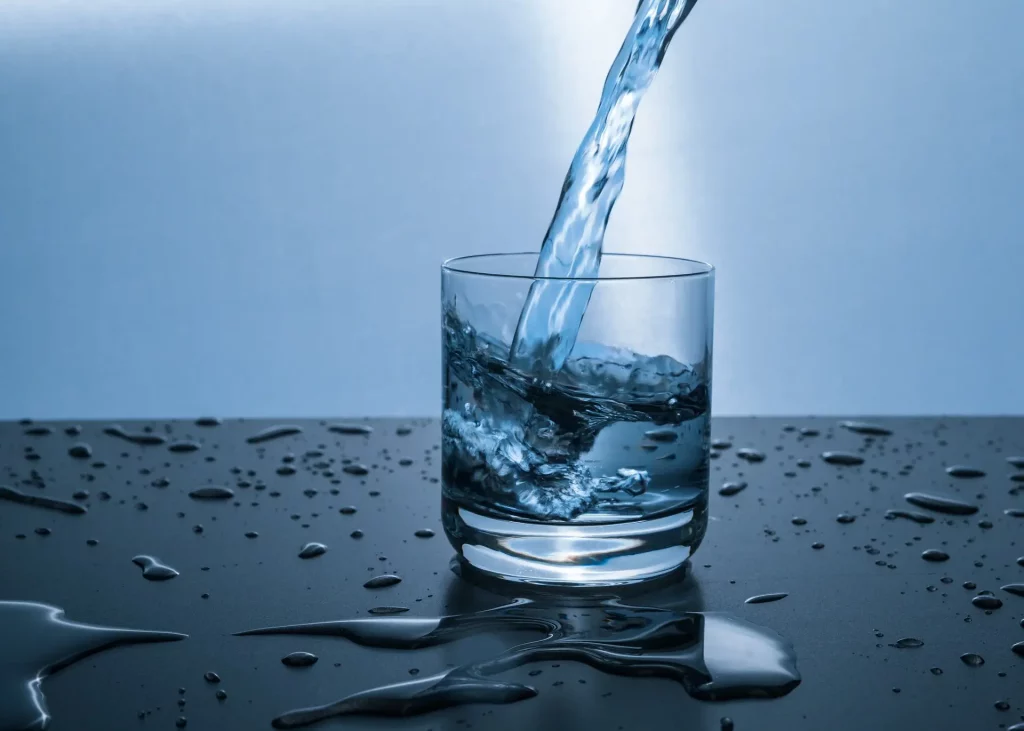
Many of us struggle to meet our fluid requirements, particularly when the weather starts to cool down. Regardless of the season, staying adequately hydrated is incredibly important, and isn’t necessarily as difficult as you might think. Below, find our how-to guide to hydration, including our favourite tips to ensure we meet our fluid requirements each and every day.
Why hydrate?
With the human body comprised of 50 to 80 per cent water, staying adequately hydrated is critical to help it function optimally. In particular, adequate hydration helps to:
- Aid elimination of waste products and prevent constipation
- Maintain the healthy functioning of kidneys and other organs
- Deliver nutrients to cells throughout the body
- Promote saliva production and support oral health
- Support concentration, energy levels and brain health
- Lubricate and cushion the joints and spinal cord
- Regulate body temperature
- Optimise athletic performance, aid recovery and prevent injury.
Getting to know your fluid requirements
Although individual fluid requirements vary, evidence indicates that both men and women (who are not pregnant or breastfeeding) require 35 to 45 mL of fluid per kilogram of body weight, daily. Naturally, requirements will be higher for individuals who are highly physically active, and who live in warmer climates, to replace additional fluids lost through sweat.
‘Fluid’ predominantly refers to water, but also includes other fluids such as milk, tea, coffee, soups and yoghurts.
Ideally, urine should be clear to pale yellow. Medium to dark urine indicates dehydration. Other symptoms of dehydration include headaches, dizziness, dry or cracked lips, fatigue, lethargy, difficulty concentrating and general weakness. If you’re experiencing any of these signs or symptoms, these are your cues to hydrate!
How-to: Hydration
As thirst isn’t a reliable indicator of hydration status, it’s particularly important to build habits that help us to reach our fluid targets. Try our tips below to stay adequately hydrated, rain, hail or shine:
- Aim to have a large glass of water first thing each morning, to rehydrate after an overnight fast. This will also bring you closer to your daily fluid target, nice and early.
- Carry a one litre water bottle with you everywhere, aiming to finish it at least once by the end of the day.
- Keep an aesthetically-pleasing water carafe and glass on your desk as a visual reminder to keep sipping while you work.
- Set digital reminders for a glass of water regularly throughout the day.
- For a more appealing alternative, flavour your water with slices of citrus fruit, cucumber, berries or mint.
- Enjoy warming herbal teas during the cooler months, and chilled tisanes in warmer temperatures.
- Swap tap or still water for naturally infused sparkling water
- Increase fluid intake to account for caffeine and alcohol consumption, which impart a diuretic (urine-increasing, and therefore dehydrating) effect on the body.
- Enjoy dishes made with clear broths and soups – such as miso, matzo ball and pho – for meals and snacks.
- Increase your intake of water-rich fruits and vegetables such as melon, citrus fruits, berries, cucumber, celery, tomato, and green leafy vegetables including lettuce, cabbage, spinach and kale.
Tell us, how do you hydrate?
For expert dietary advice to support you on your way to optimal health, book your first appointment with one of our wonderful accredited practising dietitians today.
Written by Caitlin Branch, Student Nutritionist, and Amanda Smith, Accredited Practicing Dietitian.
References:
Mallett, L. J., Premkumar, V., Brown, L. J., May, J., Rollo, M. E., & Schumacher, T. L. (2021). Total water intake by kilogram of body weight: Analysis of the Australian 2011 to 2013 National Nutrition and Physical Activity Survey. Nutrition & Dietetics: The Journal of the Dietitians Association of Australia, 78(5), 496-505. https://doi.org/10.1111/1747-0080.12697
National Health and Medical Research Council [NHMRC] & New Zealand Ministry of Health [NZMoH]. (2016). Water. Nutrient Reference Values for Australia and New Zealand. Retrieved May 13, 2023, from https://www.eatforhealth.gov.au/nutrient-reference-values/nutrients/water
Whitney, E., Rolfes, S. R., Crowe, T., & Walsh, A. (2019). Understanding nutrition (4th ed.). Cengage Learning Australia Pty Limited.
